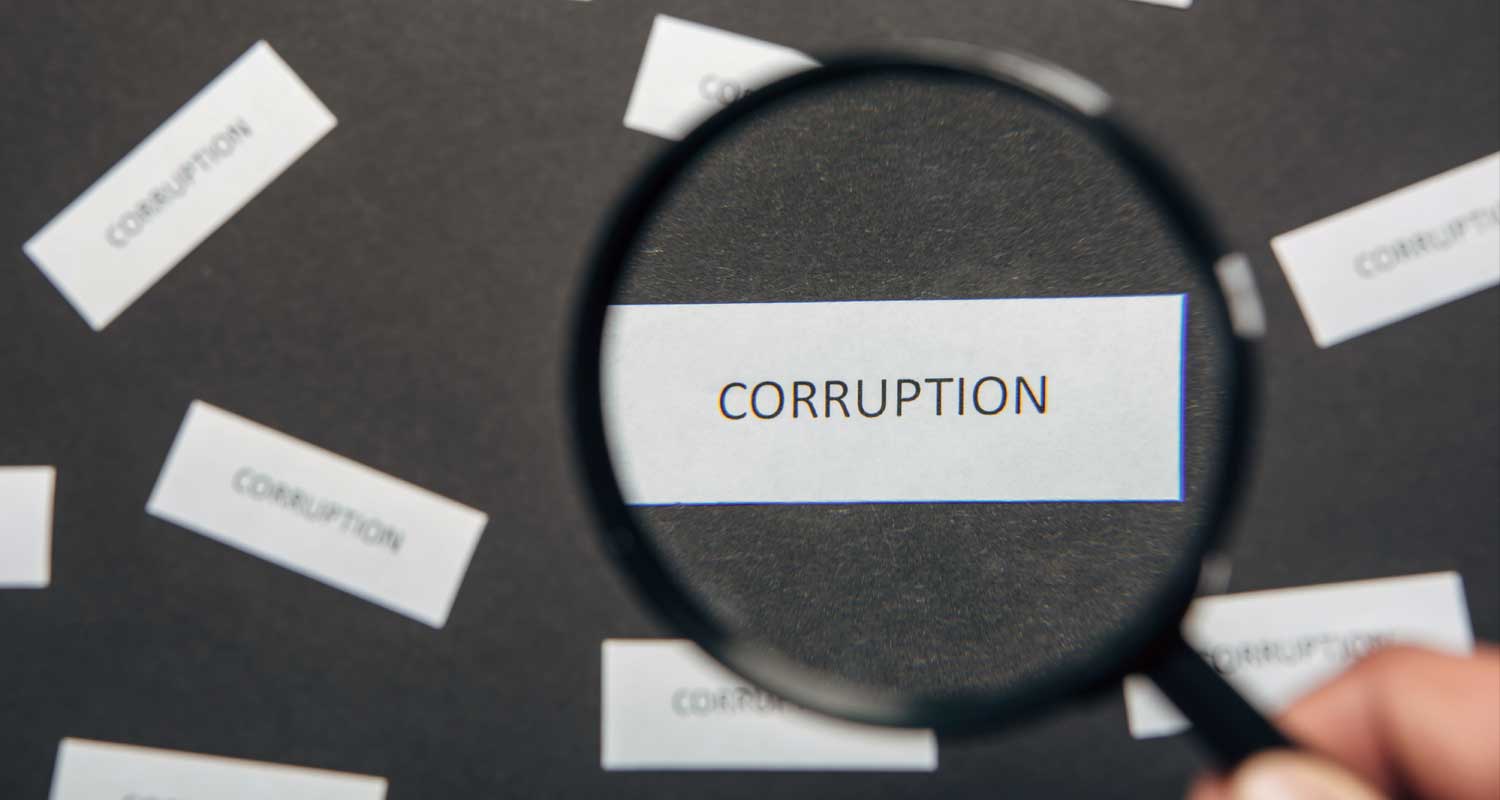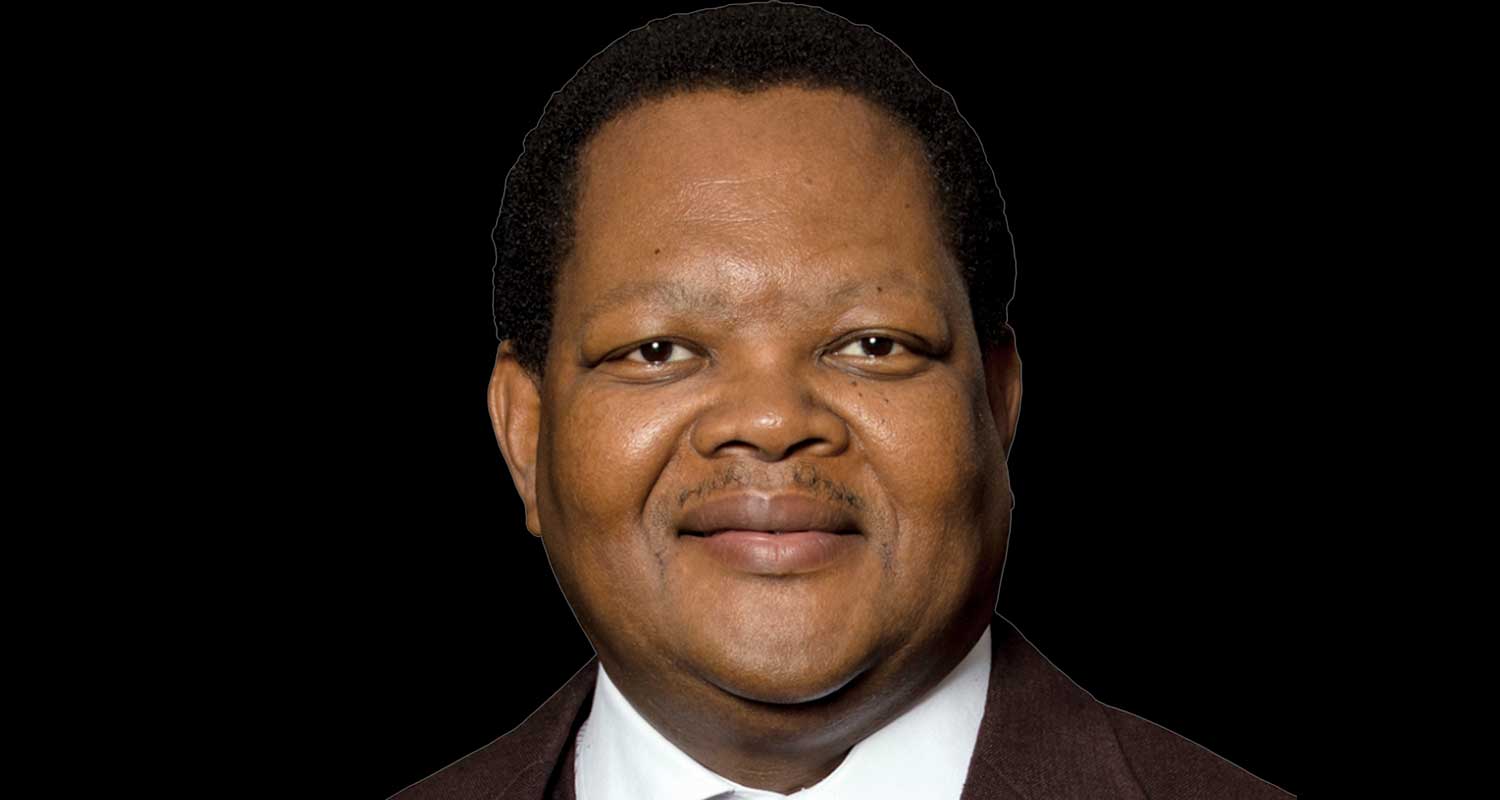 On a late Thursday afternoon last November, in the midst of rolling blackouts implemented by Eskom, a contractor at a power station in Mpumalanga pulled a plug connected to one of the site’s main generation units.
On a late Thursday afternoon last November, in the midst of rolling blackouts implemented by Eskom, a contractor at a power station in Mpumalanga pulled a plug connected to one of the site’s main generation units.
The unit subsequently broke down, ensuring yet another day of nationwide outages.
The worker later confessed that he had intentionally sabotaged the machinery — resulting in R18-million in damages and almost R110-million in lost revenue — so his employer would be hired to make the repairs, according to a statement and report presented to MPs by Eskom.
This wasn’t an isolated event – rather, it was one of more than 760 criminal incidents targeting Eskom operations over a 90-day period ending in December. At every step of its supply chain, the utility, which is responsible for producing 90% of South Africa’s energy, has had to defend itself against armed robbery, fuel theft, sabotage and corruption – all of which are increasing the risk of a complete power outage that could devastate a country teetering on the brink of recession.
“It is no exaggeration to say that [a total failure of the grid] would, in all likelihood, be a monumental and unprecedented national catastrophe that would threaten many lives,” former Eskom Chief Executive Officer André de Ruyter said in a recent affidavit for a case in which political parties are suing Eskom over power cuts.
Read: Troops ordered back to Eskom power stations
South Africans have already paid a heavy toll for the dysfunction afflicting Eskom. The South African Reserve Bank anticipates that the economy will grow just 0.2% this year, with persistent outages estimated to shave two percentage points off output growth. The cost of running diesel generators has quadrupled, and companies that can’t afford auxiliary power are struggling, quite literally, to keep the lights on.
Problem
Eskom’s ability to meet demand was a problem even before violence and vandalism reached current levels, as efforts to replace flailing plants have been continually delayed. Since 2008, the company has staged rolling blackouts to avoid overtaxing the system, and in recent years these have grown longer and more frequent, sometimes stretching for as long as 12 hours at a time. Last year, outages rose fourfold from the previous annual record and took place on more than 200 days.
Making matters worse is the fact that the century-old utility has become a piggy bank for corrupt networks and complicit officials seemingly willing to trade South Africa’s stability and economic prospects for personal gain. Under the tenure of the ANC – and particularly former President Jacob Zuma – looting at state-owned companies including Eskom and rail and logistics company Transnet cost the country an estimated R500-billion, according to the government. Zuma has consistently denied wrongdoing.
As problems have mounted, Eskom’s board has said it has taken steps to fight the graft, but they haven’t been enough. In February, De Ruyter stepped down as CEO after claiming that top-ranking ANC members were illicitly profiting from corruption within the utility. By that point, he had already made his share of powerful enemies: two months before, he said his morning coffee had been spiked with cyanide.
Read: Nothing new on Eskom graft from De Ruyter in parliament
Facing attacks from all sides, the company appears trapped in a race to the bottom. As government ministers and utility executives point fingers at each other, each new incident threatens further outages and continued price hikes for customers already struggling with widespread unemployment and rising costs of living.
Between the grassy brown hills of Mpumalanga east of Johannesburg, a massive web of conveyor belts ferries millions of tons of coal a year from the surrounding mines to a cluster of Eskom stations. Once the coal arrives, it is pulverised and fed into the boilers that produce electricity. Industrial generators, towering stories above ducts and equipment, hum along as the plants expel mountains of ash.

South Africa has some of the world’s richest coal reserves, producing almost half as much of the mineral as the US does per year despite having a land mass about 13% of its size. Eskom spends roughly R74-billion/year on the resource – much of which never makes it inside the plants.
Towards the end of last year, guards at the Kendal station in Mpumalanga discovered that truck drivers weren’t emptying coal from their trailers. As prices have surged, coal theft has grown worse in recent years, said Rajie Murugan, CEO of G9 Group, a company that works with Eskom suppliers.
“We’ve arrested many drivers involved,” he said, “but it’s always difficult to get the kingpins.”
Several illicit facilities used to blend the mineral have already been shut down across Mpumalanga, and almost three dozen other sites are under investigation, Eskom said in court papers. The coal mafias behind them have also been known to pay off security personnel and plant workers, to force engineers and managers to create fake procurement orders for goods or services, and to re-sell stolen Eskom parts back to the utility. In short, “every part of the chain” is bought off, Murugan explained.
Read: Jan Oberholzer to stay on at Eskom
Getting a handle on the situation is especially difficult as theft is often reinforced with intimidation and violence, observed Thapelo Malekutu, an official of the National Union of Mineworkers, the biggest union at the utility. Employees suspected of working with criminal groups are rarely willing to disclose details for fear of what might happen to them, he said.
The utility has also reported a spike in incidents of industrial sabotage in recent years
In a detailed report to parliament, the utility confirmed that “areas with high rates of violent crimes and well-established syndicates bear high risk of assault, injuries and fatalities”. It also warned: “Guards are likely to lose their lives while safeguarding Eskom.”
Not even the R3.2-billion that Eskom spends annually on private security has been enough to keep things under control. Soldiers were deployed at some of the company’s coal stations last year as blackouts became more frequent. In spite of the stepped-up surveillance, thieves looted thousands of rands’ worth of copper wire from the Duvha power plant over a two-day period, and four contractors fixing the energy grid in Ekurhuleni (East Rand) were attacked and killed by residents who assumed they were stealing cables, according to city officials.
The utility has also reported a spike in incidents of industrial sabotage in recent years, pinning the blame on disgruntled contractors and heated wage negotiations.
Read: Nothing new on Eskom graft from De Ruyter in parliament
In almost every imaginable way, the utility is haemorrhaging money. In addition to outright theft, Eskom lawyers are seeking to recoup hundreds of millions of dollars paid out through suspect contracts. According to deputy President Paul Mashatile, the company is awaiting R56-billion rand in outstanding payments from municipalities across the country.
Before stepping down in February, De Ruyter estimated that R12-billion is stolen from Eskom each year – an amount that matches the company’s most recent annual loss.
Shake the cobwebs
When Cyril Ramaphosa became president in 2018, he highlighted Eskom’s reform as a major focus. The first leadership team he appointed to run the utility looked through years of records and found billions of rand of irregular contracts, promising to open criminal cases against senior Eskom executives. “We will continue to shake these cobwebs,” former chairman Jabu Mabuza told reporters that year. “There may be more.”
The question of corruption at Eskom has always been intertwined with politics, which makes it difficult to extract at its roots. A judicial probe concluded last year that former President Zuma, despite his denials, knowingly facilitated audacious looting at the state power utility during his almost nine-year rule, after scores of witnesses testified about deals secured with bribes and kickbacks.
Political sensitivities still run high. De Ruyter, the former CEO, enraged ANC members this year by alleging in an interview that high-level government members were involved in corruption at the utility. Days later, following a widespread outcry, he was gone. Even Pravin Gordhan, the minister of public enterprises — and one of de Ruyter’s most visible advocates in government — dismissed his remarks.
Read: Eskom shortlists five CEO candidates
While the ruling party acknowledges that corruption remains a problem at Eskom, it maintains that it is being cleaned up under Gordhan. Some top government officials barely seem to prioritise the issue. During a March tour of 18 power stations, the newly appointed electricity minister blamed outages on technical problems, denying that graft was much of a factor.
In late April, De Ruyter was called to testify before parliament about the situation at Eskom. Appearing via video link from a sunny room, he told attendees that it was “probably valid” that political interference played a role in Eskom’s struggles, and emphasised that “the lack of intervention in crime in Eskom … is something that [afflicts] the organisation to this day”.

Eskom chairman Mpho Makwana, who was part of a recent revamp of the board, said in an interview that the company is taking measures to fight the graft. This includes carefully vetting new contracts, implementing automated procurement systems, and focusing on criminal prosecution of delinquent suppliers and former employees. In the last three months of last year, he said, 144 criminal cases were opened and 42 employees were dismissed due to fraud and corruption. When reached for comment, an Eskom spokeswoman said that the utility “has been working tirelessly to contain crime and has been working with industry, law enforcement agencies and the criminal justice system to fight the scourge”.
Some critics are sceptical that criminal activity will ever be fully expunged from the utility. Likening Eskom to “a feast”, Lumkile Mondi of the University of the Witwatersrand, who has written extensively on Eskom, predicted that things will only get worse. Scavengers will continue to gorge themselves, he said, “until the beast has got no bones left and there’s nothing — it’s all ashes”.
Booting UpWhile there are positive signs — Gareth Newham, head of the Justice and Violence Prevention Programme at the Institute for Security Studies in Pretoria, noted that tighter regulation around political funding has squeezed some of the cash flows that previously enabled corruption — corporate energy consumers that can afford to are finding workarounds. Some of South Africa’s top companies, including miner Anglo American and fuel and chemical manufacturer Sasol, have opted to generate more of their own electricity rather than rely completely on Eskom.
Read: The astonishing cost of propping up Eskom
Seriti Resources, an Eskom supplier, has “taken the opportunity to diversify”, said CEO Mike Teke. Rather than continue buying electricity only from the utility, Seriti is setting up wind farms to provide clean energy to its mining operations. Such power purchase agreements have grown 25-fold since 2020, reducing the burden on the grid but shrinking the utility’s revenue.
And as the number of paying customers shrinks, electricity rates, which have already more than doubled over the last decade, will have to increase even more. That puts additional pressure on townships where two-thirds of shops and small enterprises have cut jobs due to electricity shortages, according to a recent study by Nedbank Group. Small businesses have already weathered a lot, said John Dludlu, CEO of the Small Business Institute, and it’s not clear how much resilience is left.
“The current power crisis is proving too much of a blow.” — (c) 2023 Bloomberg LP

